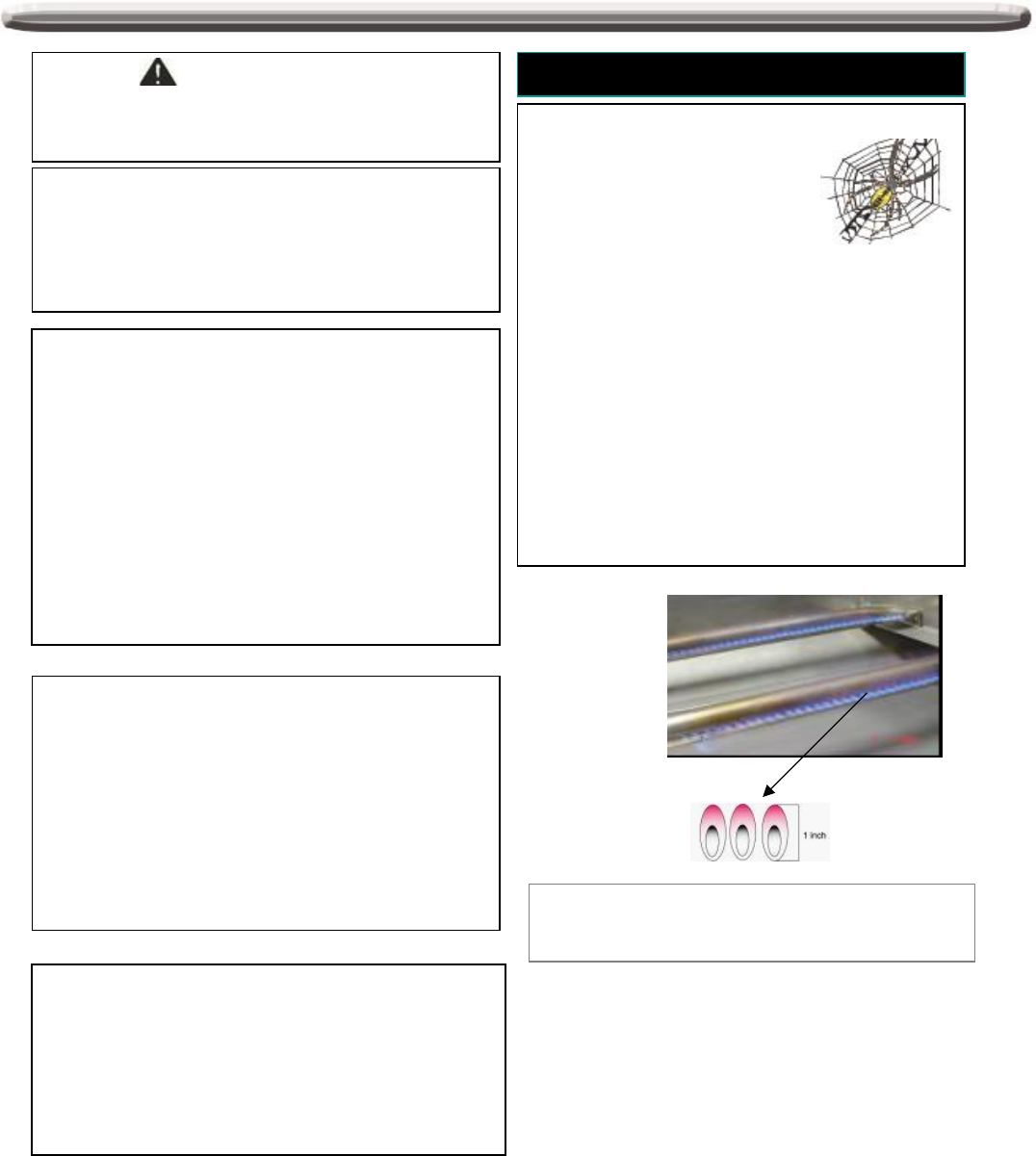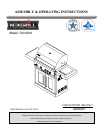Special offers from our partners!

Find Replacement BBQ Parts for 20,308 Models. Repair your BBQ today.

4
Safety Instruction continued
WARNING
Do not try lighting this appliance without reading the
“LIGHTING INSTRUCTIONS” section of this manual.
TESTED IN ACCORDANCE WITH ANS
Z21.58 CSA 1.6-2007 STANDARD FOR
OUTDOOR COOKING GAS APPLIANCE.
THIS GRILLIS FOR OUTDOOR USE
ONLY.
CAUTION: Beware of Flashback
Grill Installation Codes
Check your local building codes for the proper method of
installation. in the absence of local codes, this unit
should be installed in accordance with the National Fuel
Gas Code ,ANSI Z223.1/NFPA 54,Storage and Handling
of Liquefied Petroleum Gases, ANSI /NFPA B149.2 or
CSA B149.1 Natural Gas and Propane Installation Code,
and the National Electrical Code, ANSI/NFPA 70.
Correct LP Gas Tank Use
LP gas grill models are designed for use with a standard
20 lb. Liquid Propane Gas tank, not included with grill.
Never connect your gas grill to an LP gas tank that
exceeds this capacity.
If an external electrical source is utilized: The outdoor
cooking gas appliance, when installed, must be
electrically grounded in accordance with local codes or,
in the absence of local codes, with the National Electrical
Code, ANSI/NFPA 70, or the Canadian Electrical Code,
CSA C22.1.
WARNING
Keep any electrical supply cord and the fuel supply hose
away from any heated surfaces.
NOTE: The normal flow of gas through the regulator and
hose assembly can create a humming noise. A low
volume of noise is perfectly normal and will not interfere
with operation of the grill. If humming noise is loud and
excessive you may need to purge air from the gas line or
reset the regulator excess gas flow device. This purging
procedure should be done every time a new LP gas tank
is connected to your grill.
CAUTION: Spiders and small insects occasionally
spin webs or make nest in the grill
burner tubes during transit and
warehousing. These webs can lead
to gas flow obstruction, which could
result in a fire in and around burner
tubes. This type of fire is known as
“FLASH-BACK” and can cause serious damage to
your grill and create an unsafe operating condition for
the user.
Although an obstructed burner tube is not the only
cause of “FLASH-BACK”, it is the most common
cause.
To reduce the chance of “FLASH-BACK”, you must
clean the burner tubes before assembling your grill,
and at least once a month in late summer or early fall
when spiders are most active. Also perform this
burner tube cleaning procedure if your grill has not
been used for an extended period of time. A clogged
tube can lead to a fire beneath the grill.
Visually check the burner flames prior to each use.
The flames should look like this picture. If they do not,
refer to the burner main tenancy part of this manual.


















